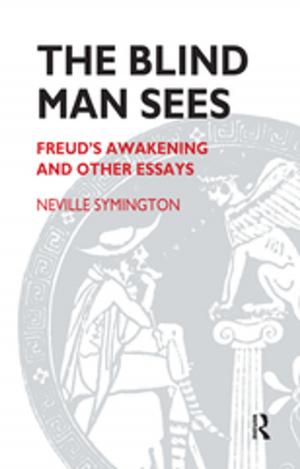Robert Louis Stevenson and the Great Affair
Movement, Memory and Modernity
Fiction & Literature, Literary Theory & Criticism, British| Author: | ISBN: | 9781317062196 | |
| Publisher: | Taylor and Francis | Publication: | February 3, 2017 |
| Imprint: | Routledge | Language: | English |
| Author: | |
| ISBN: | 9781317062196 |
| Publisher: | Taylor and Francis |
| Publication: | February 3, 2017 |
| Imprint: | Routledge |
| Language: | English |
In his travel narrative Travels with a Donkey in the Cevennes (1879), Robert Louis Stevenson declares, "I travel not to go anywhere, but to go. I travel for travel's sake. The great affair is to move." Taking up the concepts of time, place, and memory, the contributors to this collection explore in what ways the dynamic view of life suggested by this quotation permeates Stevenson's work. The essays adopt a wide variety of critical approaches, including post-colonial theory, post-structuralism, new historicism, art history, and philosophy, making use of the vast array of literary materials that Stevenson left across a global journey that began in Scotland in 1850 and ended in Samoa in 1894. These range from travel journals, letters, and classic literary staples such as Treasure Island and The Strange Case of Dr. Jekyll and Mr. Hyde, to rarely read masterpieces such as The Master of Ballantrae or The Ebb-Tide. While much recent scholarship on Stevenson foregrounds geography, the present volume also examines the theme of movement across memory, time, and generic boundaries. Taken together, the essays offer a view of Stevenson that demonstrates how the protean nature of his literary output reflects the radical developments in science, technology, and culture that characterized the age in which he lived.
In his travel narrative Travels with a Donkey in the Cevennes (1879), Robert Louis Stevenson declares, "I travel not to go anywhere, but to go. I travel for travel's sake. The great affair is to move." Taking up the concepts of time, place, and memory, the contributors to this collection explore in what ways the dynamic view of life suggested by this quotation permeates Stevenson's work. The essays adopt a wide variety of critical approaches, including post-colonial theory, post-structuralism, new historicism, art history, and philosophy, making use of the vast array of literary materials that Stevenson left across a global journey that began in Scotland in 1850 and ended in Samoa in 1894. These range from travel journals, letters, and classic literary staples such as Treasure Island and The Strange Case of Dr. Jekyll and Mr. Hyde, to rarely read masterpieces such as The Master of Ballantrae or The Ebb-Tide. While much recent scholarship on Stevenson foregrounds geography, the present volume also examines the theme of movement across memory, time, and generic boundaries. Taken together, the essays offer a view of Stevenson that demonstrates how the protean nature of his literary output reflects the radical developments in science, technology, and culture that characterized the age in which he lived.















